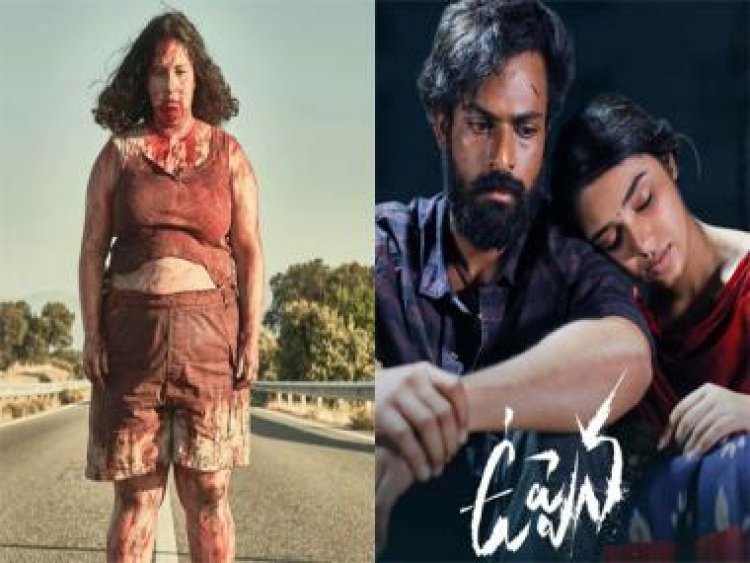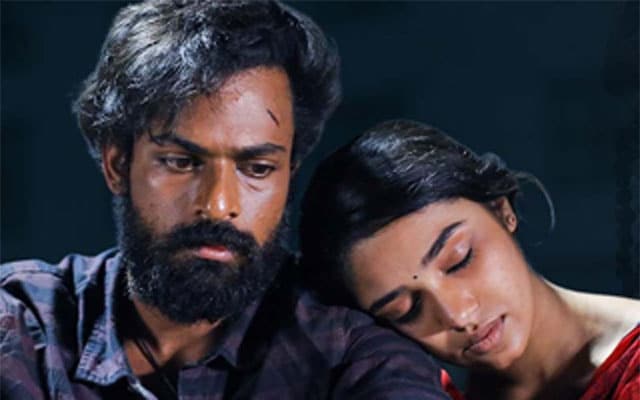First Take: When the truth looks too ugly
First Take: When the truth looks too ugly

There are some films that open doors which we don’t want to talk through.
Carlota Pereda’s Spanish film Piggy is not an easy watch. It is meant to be a scathing indictment of body shaming. But there is so much of it heaped on the overweight protagonist you wonder whose side the filmmaker is really on. Of course we know the answer to that. But there is nonetheless a very thin live dividing the actually body shaming from the shame of it all in this borderline offensive smart and subversive film.

Piggy opens with Sara , played with a terrifying absence of inhibition by Laura Galan, being heckled out of a swimming pool by her more shapely “friends” from school. Watching Laura Galán waddling in a panic down the road in her oversized bikinis not an easy sight. Director Carlota Perdeda spares us none of the ugliness that accompanies body shaming. She seems to believe that the more we participate in Sara’s shaming, the more the pleasure in the payoff.
And what a payoff it is! A stranger , played by a selfconsciously sexual Richard Holmes takes charge. He kidnaps the girls who have tormented Sara and tortures them to gruesome graphic death. We know the mysterious violent stranger has the hots for the obese heroine early on when, in a sequence both mellow and macabre, he throws a towel at Sara to cover her massive body before driving of with a shrieking battered body shamer.
Throughout its austere playing time the narrative weighs in the brutality with bouts of kindness from the stranger. He is the only one who shows Sara compassion and even love. But it’s the lust part that she is curious about. Sara’s nocturnal activities in the privacy of her bedroom convince us of that.
Her parents are not particularly kind to Sara. The mother (played by a firebrand actress Carmen Machi) is especially harsh on Sara ridiculing her at the smallest pretext while the father looks on lethargically glued to his sofa.
So cruel and despondent is Sara’s world that we seek not her escape from it, but ours .While on the one hand we admire the film for not sanitizing or prettifying or, worse glorifying obesity(the way our own dubiously devised Double XL did recently) on the other hand the body shaming in Piggy stretches the limits of decency in order to make us FEEL the victim’s shame.
But is the intrusion immersive or invasive?
Piggy is the kind of horror tale about that has a lot of brutal energy to invest in its protagonist’s grotesque existence. Where one seeks compassion one gets more of the same brutality. The film is based on short story featuring the same actress. And that is where it should have ended. When it comes to movies about misfits this one takes the quake.
We have seen this innumerable times. But never revenge like Buchi Babu Sana’s Uppena in Telugu, so terrible that it cannot be mentioned. Suffice it to say that this take on the theme of star-crossed love finds its bearings a bit late in the day. But as they say, better laid…sorry, late than never. Sex or its absence in a love relationship plays a crucial part in the climax when the heroine, as young and callow as they come, bravely confronts her own feelings for the man she loves and lectures her father played by the formidable Vijay Sethupathi about the true meaning of love.

“It is not important that he lie on top of me. It is important that he lies next to me,” says Bebamma to her all-powerful villainous father. Vijay Sethupathi plays the kind of cardboard villain that commercial Indian cinema has revelled in for decades. He slits his opponents’ throats, mows down the slum dwellers homes, and hunts down his daughter’s lover and meets out chilling revenge. He is every villain rolled into one.
The vendetta, castration, which comes to light only in the last fifteen minutes of this lengthy Telugu version of Romeo and Juliet puts an added spin to what is otherwise a routine rich-poor love story about the privileged giggly princess Bebamma (Krithi Shetty) and the besotted fisherman’s son Aasi (Panja Vaisshnav Tej) who stalks her from school to college and stares at her with a perpetually goofy expression. When she finally looks back at him, Aasi’s sidekick happily informs us that the girl has given the hero a “titillating” look. Whether the choice of word is a subtitle aberration or a true expression of the romantic feeling between the young lovers, we will never know. Love in this film works in mysterious ‘waves’. The seaside setting, ably lensed by Shamdat, gives to the stale tale an added veneer of vigour. The forbidden romance moves from one rustic location to another until the lovers, obviously inspired by the Marathi blockbuster Sairat elope to Odhisa, then Kolkata and finally to a hill station Sivok in West Bengal.
This is where the plot does an about-turn and delivers the melodrama to the doorstep of some belated glory. Admittedly the extended games of clandestine courtship are not all humbug. The young fresh lead players infuse a certain charm into their romantic scenes.
But it is clearly Vijay Sethupathi who like the girl’s father, dominates the show. He is chillingly menacing in his patriarchal arrogance, an arrogance that is amplified by the presence of a paralyzed wife who lies inert in bed
V K Prakash directs Oruthee is a Malayalam film which needed more support and praise. True it is flawed and fractured. And it is not easy to watch the workingclass protagonist, so caught up in crisis after crisis that we get exhausted just watching her.
But it has a terrific story of female empowerment to tell which it tells with a sliver of sincerity and an abundance of passion. Actress Navya Nair who was absent from the screen for more than decade, makes an impressive comeback as a workingclass woman with an absentee husband who, when faced with a medical emergency must sell the gold necklace that had been bought for their daughter’s future wedding. On approaching a pawn shop, Radhamani discovers to her shock that the gold in the necklace is contaminated. The film chronicles her relentless pursuit of justice with the help of a grumpy but incorruptible cop (Vinayakan). While some of the female-empowerment tropes (for example, the supportive fearless male cop to help the ‘damsel in distress’ prototype) are self-defeating and one lengthy exhausting chase sequence where Radhamani and her young son run after a bag-snatcher is plainly gimmicky, what stands out is the protagonist’s determination to stand on her own feet regardless of how long the process of justice takes. At times I could almost feel the woman’s exhaustion. Oruthee could have been as powerful a story of an ordinary family woman’s vendetta, as Saani Kaayidham. If only it did not get caught with the humbug of audience wooing.
Subhash K Jha is a Patna-based journalist. He has been writing about Bollywood for long enough to know the industry inside out.
Read all the Latest News, Trending News, Cricket News, Bollywood News, India News and Entertainment News here. Follow us on Facebook, Twitter and Instagram
What's Your Reaction?

























































